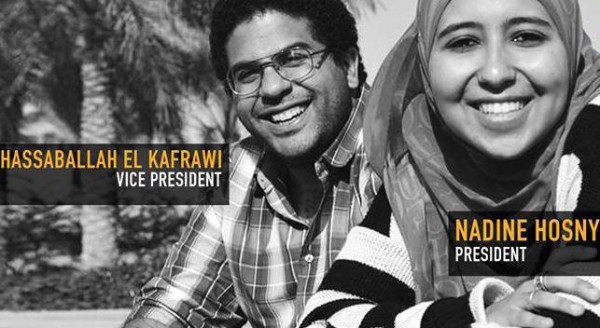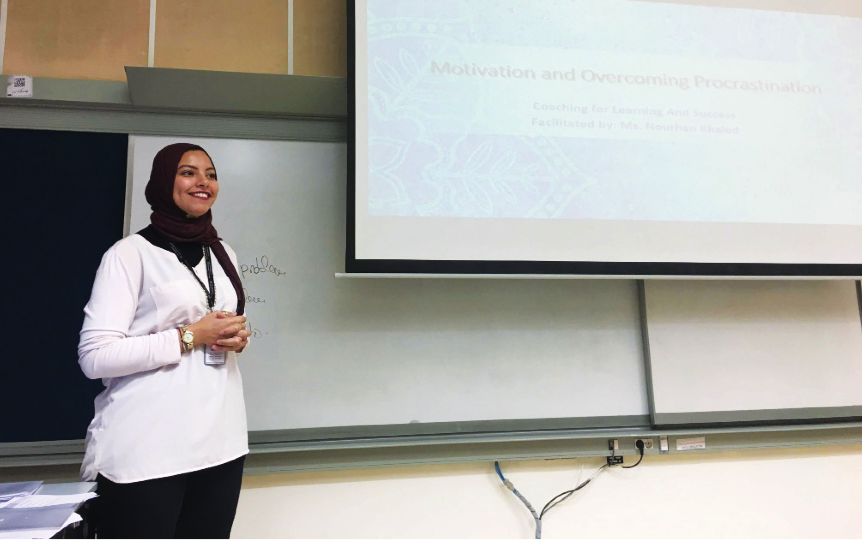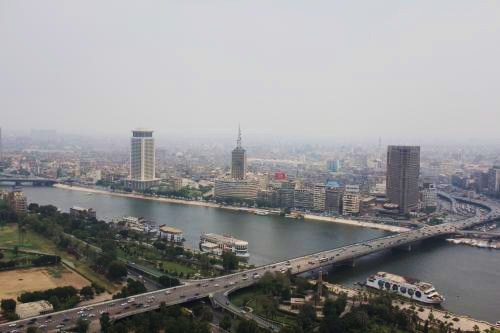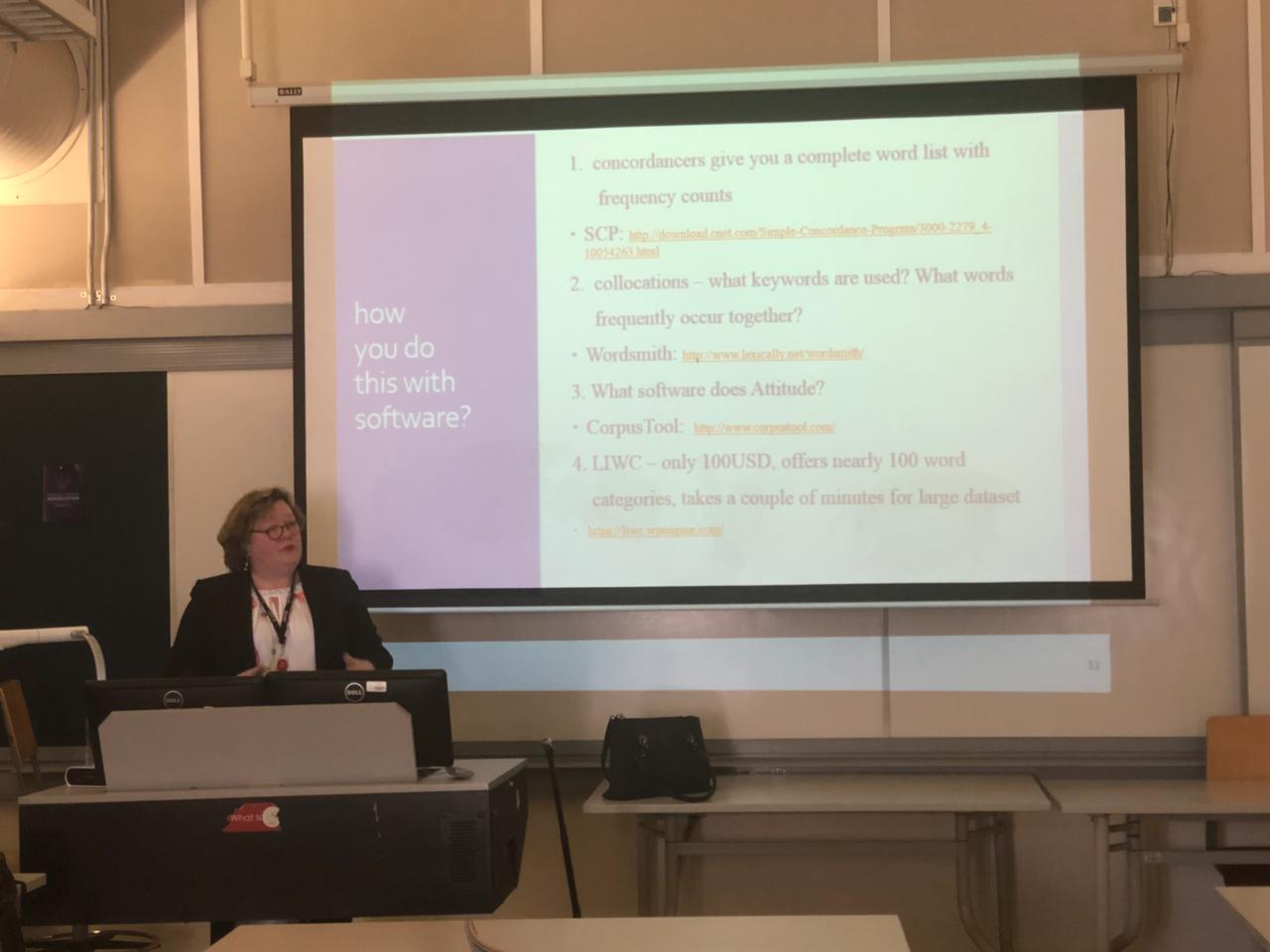Ad-hoc Committee: Nadine Hosny New SU President
BY CARAVAN STAFF

Former Student Union presidential candidate Walid Khalil has told The Caravan that he has rejected the decision reached by an ad-hoc committee awarding his rival Nadine Hosny the election.
The ad-hoc committee investigating voting irregularities in last month’s SU elections declared late Wednesday Nadine Hosny and her running mate Hasaballah El Kafrawi the winners.
“We declared Nadine and Kafrawi as the winners with a difference of 99 votes,” said Pandelli Glavanis, Chair of the Faculty Senate and the ad-hoc committee.
But Khalil said that he does not accept the committee’s decision because it is in violation of a verbal agreement between Vice-President (VP) of Student Affairs and each of the two presidential candidates that there must be a unanimous decision.
“Because they breached the agreement, I have the right to do the same. I can appeal their decision,” Khalil said, adding that he has not decided whether or not he will do so.
Dahawy, however, said that the committee did not violate the agreement because the only member of the committee who did not agree with the other members had issues with the procedure, not with the final decision.
“My understanding is that consensus means everyone agrees on the outcome, which is what happened,” Dahawy said.
The entire issue came to the fore when complaints of violations surfaced from both camps during the voting process and the Student Senate and the Student Court began probing the matter but their investigations were inconclusive.
Dahawy agreed with both candidates to create an ad-hoc committee charged with investigating the allegations, and issuing verdicts.
The ad-hoc committee was comprised of Glavanis as faculty representative; Amr El Khouly, as Office of Student Development (OSD) representative; Chief Justice Mohamed Mansoury, as a student government representative; Amr Fathy, as a student body representative and a member from the Security Office who was present during the ballot counting, as a representative of the staff.
Three subcommittees – each comprised of OSD representatives and members of each electoral campaign – reviewed video footage, which was shot at the three polling stations on campus.
Reports were then submitted to the ad-hoc committee. Glavanis said that the ad-hoc committee reviewed a number of alleged violations.
He said that there were ballots missing and unaccounted for. He added that since there was no camera in the counting room, it was impossible to determine where these ballots went.
The ad-hoc committee also discovered that an unspecified number of empty ballots at the end of the voting period were left unsupervised at one of the polling booths.
“The OSD should have somebody receiving the leftover ballots and counting them because we know how many ballots were printed, we know how many ballots were in the boxes, we have to see how many ballots were not used, add them up together and we have the total,” Glavanis said.
“That’s how you find out if there’s fraud. We cannot do that because these ballots were not counted, they were just left there.”
Glavanis added that the student who distributed the ballots among the three polling stations did not count how many ballots he gave to each booth. Therefore, the discrepancies between the original number of ballots and the number of ballots in the boxes could not be determined.
Glavanis said that one of the electoral stamps used to authenticate each ballot went missing for a period of time during the voting process.
“The stamp should be kept in a safe place all the time, there should never be a question of it missing,” he added.
Glavanis said that another major flaw of the electoral process was the fact the cameras were not running for the entire period of the voting day.
“We know that the cameras in the polling booths were switched off for an hour during the break… As a committee, we have a blank spot of an hour… We cannot guarantee that nothing happened because we can’t see it,” he said.
Given these irregularities, the ad-hoc committee measured each determined violation according to a weight scale: Minor, medium and serious.
“We then looked at the electoral regulations which give indicators of how to deduct votes; and accordingly we deducted [votes],” said Glavanis.
Although both camps were allowed to file complaints against each other, Glavanis said that the ad-hoc committee took them into consideration but did not use them as reasons to deduct votes.
“My instructions to the committee were; irrespective of what we hear from the witnesses, from the documents that we receive, unless we as a committee are able to confirm visual evidence on a video that something happened, we do not consider it a violation,” added Glavanis.
Glavanis stressed that violations came from both sides, yet at the end, Khalil’s camp had a significantly higher number of transgressions.
He said that all these discrepancies were due to bad procedures and not faults within the electoral regulations and SU constitution, which he described as “perfect”.
Hosny said that her camp filed around 60 cases against her rival candidate Walid Khalil while Khalil added his camp filed 40 complaints against Hosny’s camp.
“There was only one case filed against us and it was mainly that the campaigners who were wearing t-shirts with “Nadine and Hassballah” [printed on them], were getting too close to the gate or lines,” said Hosny.
“I’m sure that there were other violations that were not caught on tape but the committee only looked at the things that were recorded,” said Hosny.
Glavanis added that the violators will be referred to the Academic Integrity Committee.
He said that the entire process of the ad-hoc committee’s evaluation and deduction of votes is recorded on camera and can be viewed by anyone.
He added that after collecting all the discrepancies that occurred, the committee compiled a report of recommendation for future electoral processes.
A few of the recommendations were to leave the cameras in the polling booths on at all times, place a camera in the counting room, and to develop a more efficient process of ballot distribution and collection.
Glavanis added that he personally believes no one violation was seriously premeditated or planned.
On the other hand, he believes this is a reflection of the climate in Egypt where people think they can take the law into their own hands and that they don’t have to obey rules and regulations.
“I think what [the violations] say about student government is that it needs a lot of tidying up, it needs a lot of self-regulation,” he added.
Hosny said that the entire situation reflects badly on the student government made them look “childish” in front of the administration.
“It’s not a good reflection at all but I choose to believe that there are people inside who want to fix [these problems] and that there are people whom the system is not helping in fixing these problems,” she added.
Hosny said that the student government needs to start “digging” to determine what their problems are and how to solve them.
She added that a major problem within the student government is the lack of cooperation and abundance of biases between them.
“The student government exists to see the well-being of the AUC student body, I don’t see that we’re doing this at all,” said Hosny.
A survey conducted by Caravan staff appears to justify Hosny’s concerns.
Sixty percent of 300 students polled said they did not feel the SU represented them adequately.
Some 32 percent said the SU was working in their best interest, while eight percent said they were undecided because they did not know enough about it.



